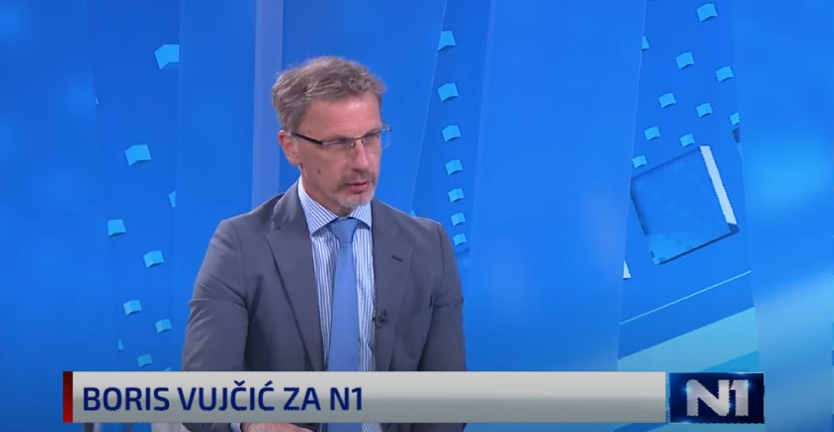The CNB Governor Boris Vujcic pointed out that Croatian tax reforms, which will have implications next year, is something that should contribute to increasing personal consumption, ie consumer optimism.
As Poslovni Dnevnik writes on the 1st of September, 2020, the CNB Governor Boris Vujcic was a guest on N1 recently, on which he commented on the decline of Croatia’s GDP, he also discussed economic expectations for the country in 2021.
Vujcic said that the decline in GDP of just over 15 percent is in line with trends across the European Union, where the average GDP fell by 14 percent, and everything depended on the intensity of epidemiological measures.
“As for the whole year, we expect that in the third quarter, tourism will be better than what we projected it to be in the baseline scenario. Basically, we expected a drop in tourist revenues of 70 percent, and given the achievements, we can say that we expect at this time that the decline will be between 30 and 50 percent when compared to 2019,” said Vujcic.
However, the CNB Governor pointed out that this will be influenced by the further development of the epidemiological situation in Croatia and across Europe as a whole, as well as possible additional measures that will be taken, so the uncertainty is still quite high.
As far as tourism is concerned, considering the epidemiological situation and what other countries are doing, Vujcic believes that we have gained the maximum possible. “We can’t expect September to contribute significantly to that picture,” he added.
Commenting on the possible growth of household consumption, CNB Governor Boris Vujcic said that that is largely influenced by expectations, consumer optimism, and it depends on the situation on the labour market, the state of employment and unemployment and income expectations. “If people feel uncertainty, they’re afraid that they might lose their jobs, if they expect or they ‘e afraid that their salaries could be reduced, then they’re going to spend less than they might otherwise,” Vujcic said.
“At the moment, we’re in a situation where, given that the quarantine has ended, personal consumption indicators are improving in the third quarter, but they’re far from the levels we had in 2019,” he added. He pointed out that tax reform, which will have implications next year, is something that should contribute to increasing personal consumption, ie consumer optimism.
When it comes to economic downturn, the decline in sources of goods and services stands at 40.6 percent, however, merchandise exports fell by only 10 percent, which analysts are very pleased with.
“The Croatian economy is now much stronger and more resilient than it was back in 2010, 2011 or 2012, and this is a consequence of the fact that Croatia joined the European Union in 2013, after which merchandise exports began to grow strongly and after which our economy became more strongly integrated with the economy of the European Union. Due to social distancing and all of the measures that were taken, services are much more sensitive to this situation with the pandemic,” said Vujcic.
The CNB expects that Croatia will have a strong recovery in 2021, and there is still a lot of uncertainty and uncertainty about how the situation with the ongoing coronavirus pandemic will develop further.
“We can maintain macroeconomic stability without any issues, and fiscal indicators can improve, as far as the trend of public debt-to-GDP ratio is concerned. As for the exchange rate, we’re ready to maintain the stability of this exchange rate until entering the Eurozone,” said Vujcic.
“The CNB provides liquidity, both in kuna and foreign currency, and at the same time we provide favourable financing conditions, favourable interest rates. The exchange rate is stable and interest rates are at their historically lowest levels. Interest rates on housing loans have reached 2.5 percent, which means that they fell during the crisis, and as far as cash loans are concerned, they’re at their lowest levels,” said the CNB Governor Boris Vujcic.
“As far as lending is concerned, we have a situation where banks have given 3.5 billion kuna to companies, and now the demand for loans is declining, and the conditions for lending are becoming stricter, because the risks are growing. The higher the risk, the stricter the conditions will be. Cash loans have fallen, and housing loans continue to grow and have risen about 9 percent this year. In the new cycle of the APN, we can expect housing loans to increase again, while for cash loans we can’t expect that,” he concluded.
For more, follow our lifestyle page.
For the latest travel info, bookmark our main travel info article, which is updated daily.
Read the Croatian Travel Update in your language – now available in 24 languages
Join the Total Croatia Travel INFO Viber community.










